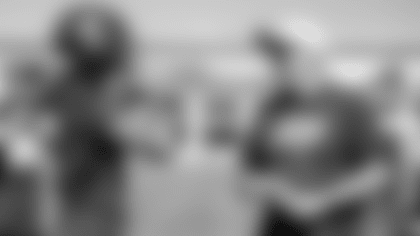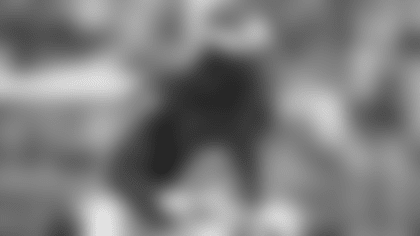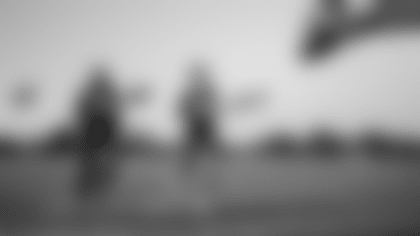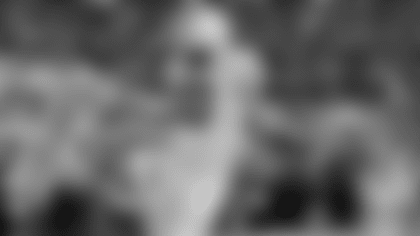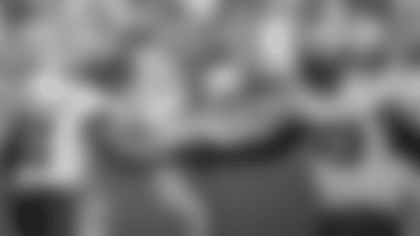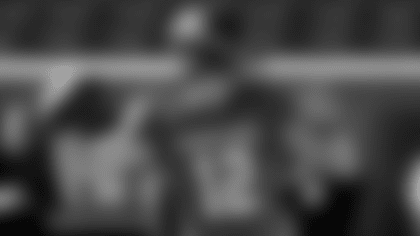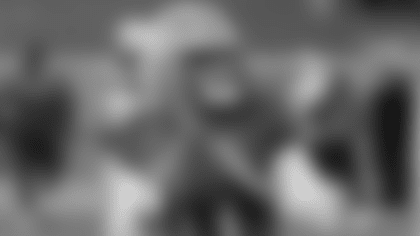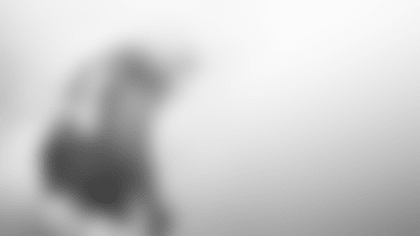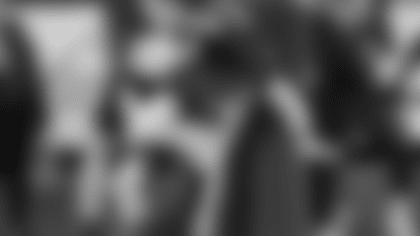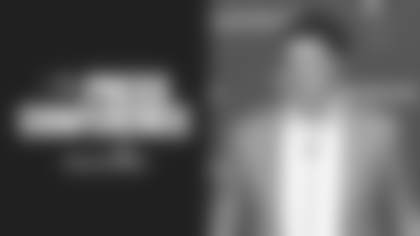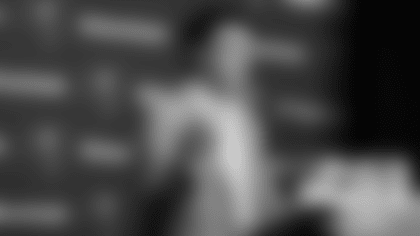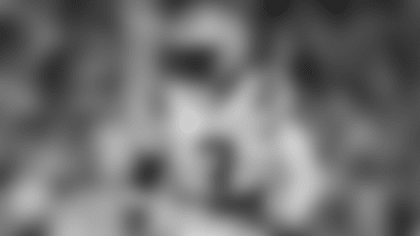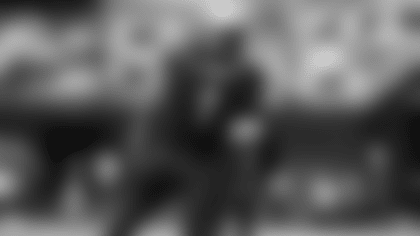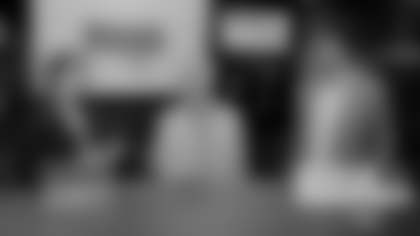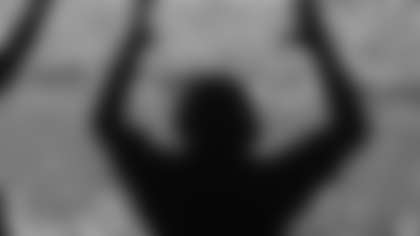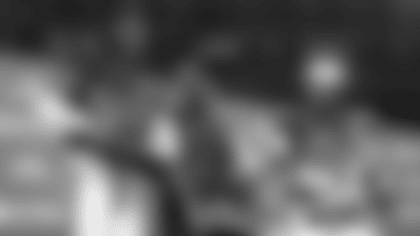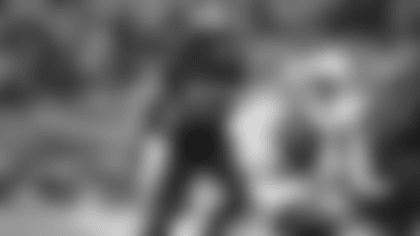On October 3, 2011, the Tampa Bay Buccaneers will play their first Monday Night Football home game in eight years.
The MNF crew last came to the Bay area in 2003 (and it was ABC then; it's now ESPN), when the defending league champions actually boasted three Monday night games. After a season-opening prime-time win at Philadelphia, the Buccaneers had Monday home dates scheduled against Indianapolis in October and the New York Giants in November.
Tampa Bay won its last Monday Night Football home game, defeating the Giants 19-13 thanks to a 53-yard touchdown catch by Charles Lee late in the second half. Buccaneer fans might remember the October Monday-nighter more vividly, though not more fondly, as Peyton Manning staged a stunning fourth-quarter comeback to lead the Colts to a 38-35 overtime victory.
Coincidentally, it is the Colts who will be back in town for the Bucs' next prime-time affair this October. Week Four of this year's Monday Night Football schedule will pit two teams that finished 10-6 in 2010, two teams led by notable quarterbacks – the Bucs expect Josh Freeman to become the long-time presence in Tampa that Manning has been in Indy – and two teams that should be in the thick of the 2011 playoff hunt.
The Buccaneers have been included on the Monday Night Football schedule just three times since, once each in 2004, 2006 and 2008. All three of those games were on the road, and all three resulted in losses – at St. Louis in 2004 and at Carolina in both 2006 and 2008. Until that run, however, Tampa Bay actually had a winning record on Monday Night Football, and had done well in prime time games in general played in Tampa. In addition, some of the most exciting regular-season moments in franchise history have occurred under the lights and with a national audience.
In their 35-season history, the Buccaneers have played 37 prime-time, nationally-broadcast games, beginning with a 10-9 ABC Thursday Night Football win over the Los Angeles Rams in September of 1980. That game was a small measure of revenge for the Bucs, who had advanced all the way to the NFC Championship Game in 1979, just their fourth year of existence, before falling to the Rams, 9-0.
Overall, the Bucs are 16-21 in these prime-time affairs, but that includes a 13-8 mark at Tampa and Raymond James Stadiums. On Monday Night, in particular, the Bucs have been good at home, compiling a 6-3 mark in that situation…and it's 7-3 if one wants to include a Saturday night outing against Baltimore in 2001 that was considered part of the MNF schedule. The league did not play a Monday Night Football game two days later, on New Year's Eve.
This fall, the Buccaneers will also play their first Sunday Night Football game since a 20-10 victory over the visiting Seattle Seahawks on October 19, 2008. That raised the Bucs' all-time home record on Sunday night to 5-4. Those evenings, too, have produced some good memories for the Buccaneers through the years.
Here's a look at five of the top prime-time regular-season moments in Tampa Bay franchise history. Four of the five, unsurprisingly, occurred at home; we included one prime-time road moment at the end:
1. Nov. 29, 1982: Bucs Shock Strock, Dolphins
Though it was late November, the Buccaneers were still looking for their first win of the season when they took on the Dolphins at Tampa Stadium for this intrastate Monday night affair. A players' strike had chopped out the middle of the season, and the Bucs were 0-3 but far from out of the playoff race. In fact, Tampa Bay would rally to win five of its last six games and earn a spot in the "Super Bowl Tournament" postseason format that followed.
It started with this rousing defensive effort against Miami, which included five interceptions, two each by Mike Washington and Neal Colzie. Four of the five came off Don Strock, who relieved David Woodley at halftime with the Dolphins trailing, 6-3. Miami Head Coach Don Shula lamented after the game that both of his quarterbacks had difficulty finding enough time to throw, with a relentless pass rush led by defensive end Lee Roy Selmon (five QB pressures).
Still, the Buccaneers were actually out-gained in the game, 330-215, and had a particularly hard time moving the ball through the air. Quarterback Doug Williams completed just seven of 19 passes for 81 yards, his lowest yardage total in 28 games. However, what Williams also did not do was throw interceptions, as the Bucs won the turnover battle, 6-0.
Still leading by just three points, the Buccaneers finally cracked the end zone late in the third quarter on a seven-play drive that was all running plays. After James Wilder and Melvin Carver alternated carries to get the ball down to the Miami three, Williams ran it in himself to make it 13-3.
It was 16-3 when Strock got the Dolphins moving in the fourth quarter, throwing a seven-yard touchdown pass to tight end Joe Rose to pull his team within six. Colzie's first interception of the game followed a few minutes later, killing another Miami rally and setting the Bucs up at the Dolphins' 10. Four running plays later and the 13-point lead had been re-established. Still, the Dolphins didn't give in.
Colzie picked off Strock again in Buccaneer territory but the Dolphins got the ball back and scored with 43 seconds left in the game. Even worse, the visitors successfully executed an onside kick and got the ball back to the Bucs' 40. One last crack at the end zone ended up in Washington's arms to seal the win. Said Bucs Head Coach John McKay: "If we didn't win this game, we're out of it."
But the Bucs stayed in it, eventually grabbing their third playoff bid in a four-year period. McKay gave the credit to his swarming, aggressive defense. "I think we worked very hard," he said. "If you don't get the interceptions and don't pick up the fumbles, you're just killing grass."
**
2. Sept. 21, 1997: New Bucs Cast Overwhelms Dolphins Again
September of '97 was a heady month for the Buccaneers, who were about to snap a decade-and-a-half of futility.
After that 1982 playoff run that was kick-started by a win over the Dolphins, the team would struggle through 15 consecutive losing seasons. However, in 1995, the franchise was purchased by Malcolm Glazer and in 1996 Head Coach Tony Dungy and Defensive Coordinator Monte Kiffin arrived. The Bucs went 6-10 in Dungy's first year at the helm but had a strong, confidence-building end to the season.
The 1997 campaign began with an eye-opening win over Steve Young, Jerry Rice and the San Francisco 49ers. Road wins at Detroit and Minnesota followed and the Bucs were 3-0 for the first time in 18 years. In Week Four, Miami would come to Tampa Stadium with a 2-1 record and in the middle of a 15-year streak of non-losing seasons, with the great Dan Marino still at the helm. It was a serious challenge for a team that was trying to prove its fast start was no fluke. The Bucs had few established stars to counter Marino…yet. By the end of the year, Tampa Bay would have eight Pro Bowl bids, more than the franchise had received in the previous 13 years combined.
That rising star power showed up in a big way on this Sunday night. Mike Alstott ran for 95 yards and caught two touchdown passes. Rookie sensation Warrick Dunn caught six passes for 106 yards and a score. Derrick Brooks and Hardy Nickerson had 10 tackles each. And most encouragingly for the Buccaneers, quarterback Trent Dilfer turned in a career performance, completing 18 of 24 passes for 248 yards and four touchdowns.
The Bucs had relied on their running game and a tough defense to rush out to a 3-0 start, but the gloves came off in this one against Jason Taylor, Zach Thomas and one of the NFL's best defenses. Dilfer threw on five of the Bucs' first eight plays, the last a short pass in the left flat to Alstott, who dived in for the game's first score. That revved up a vocal, sold-out crowd that created a playoff-type atmosphere all evening. The opponent probably had something to do with that – Dolphins Head Coach Jimmy Johnson had declined to interview with the Buccaneers the year before because he preferred the Miami job. Specifically, he preferred having Marino under center to Dilfer, so it was gratifying to the entire Buccaneers team to see Dilfer outduel the Hall of Fame-bound Dolphin, at least on this evening.
The home team opened up leads of 14-0 and 24-7, and never seriously felt threatened. The Dolphins were within 10 points, however, with most of the fourth quarter to play, so the Bucs couldn't afford to coast into the locker room. Instead, Dunn went coast-to-coast, taking a short screen pass from Dilfer and breaking out into the open for a 58-yard scoring catch. Miami would score once more late in the period but the Bucs still left with a 31-21 decision and a firm belief that they were in the playoff chase for real.
**
3. Dec. 7, 1998: Bucs' Swarm Over Favre, Packers
The Buccaneers did go back to the playoffs in 1997, snaring a Wild Card berth at 10-6 and winning their first playoff game in 15 years with a 20-10 downing of the Detroit Lions. That was the last game ever played at Tampa Stadium.
However, the Bucs couldn't clear their biggest hurdle in 1997: the Green Bay Packers. Green Bay won both regular-season meetings between the two clubs and then eliminated their NFC Central rivals in the divisional round of the playoffs. Heading into 1998, Green Bay had beaten Tampa Bay in 11 of the 12 previous meetings, and they tacked on another win at Lambeau Field in September of '98.
The Buccaneers struggled a little more than expected in 1998; it was their only non-playoff season from 1997-2002. They were just 5-7 as December began, and their first opponent of the final month would be the Packers, in the first Monday Night Football game staged at Raymond James Stadium. The Packers were coming off a Super Bowl appearance in '97 and were on their way to the playoffs again in '98. They also had Brett Favre in his prime; he would throw for 4,200 yards and 31 touchdowns that season.
But the Bucs still had their playmaking defense, and while it had been a bit more up-and-down than expected that season, it came out blazing on this Monday night.
Incredibly, the Buccaneers sacked Favre eight times and forced eight fumbles, six of them by the quarterback. While the Packers were able to recover six of those eight loose balls, they were not able to get in an offensive groove and were down 14-6 at halftime. It was Dilfer who had heaved up a couple long touchdown passes, hitting Jacquez Green for 64 yards and Bert Emanuel for 62.
Favre rallied the Packers early in the fourth quarter, throwing a touchdown pass to Mark Chmura that could have tied the game at 17-all had a two-point conversion attempt succeeded. Instead, the Bucs maintained the lead, then made it a two-score game again when Dilfer ran for a six-yard touchdown on third-and-goal with six minutes to play. The drive was set up by a Favre fumble, recovered by Donnie Abraham, and most of its 53 yards was chewed up by Dunn runs and Dunn catches.
Favre and Chmura did hook up one more time with 2:20 to go, making it a two-point ballgame once again, but a 16-yard Dunn run gave the Bucs the one first down they needed to run out most of the clock. The Packers got the ball back one more time with 16 seconds left but a sack shared by Warren Sapp and Brad Culpepper ended the threat.
Culpepper and Regan Upshaw each finished with two sacks, and Ronde Barber ran up a line of nine solo tackles, one sack and two forced fumbles. Tampa Bay's defense gave up 334 yards overall but didn't have too many outings better than this one in 1998.
**
Dec. 18, 2000: Shootout Avenges NFC Championship Game Loss
Taken as a pair, the 1999 NFC Championship Game and the Monday Night Football Game in Week 16 of the 2000 season were among the most surprising outcomes in the entire NFL at the turn of the century.
The 1999 St. Louis Rams were "The Greatest Show on Turf," an impossibly high-powered offense featuring Kurt Warner, Marshall Faulk, Torry Holt and Isaac Bruce. The Bucs had advanced to the conference title game largely on the strength of their stingy defense, but few outsiders thought they could effectively slow down an offense that was averaging more than 30 points per game.
Oh, but they could. In fact, the Bucs were clinging to a 6-5 lead with less than four minutes remaining in the game before Warner finally got the home team into the end zone (and into the Super Bowl). A perfect lob to Ricky Proehl against a big Bucs blitz led to a 30-yard touchdown pass and, in the end, an 11-6 Rams victory.
The Bucs' defense had proved it was capable of putting the brakes on the Rams' offense. But if St. Louis did get its attack into high gear, could Tampa Bay's offense match it? Even fewer analysts expected that to happen when the teams met again late in 2000.
But, again, it did. In one of the most thrilling Monday Night Football affairs in years, the Buccaneers traded blows all night with Warner and company, eventually emerging with a 38-35 victory. Some consider it the most exciting regular-season game in Tampa Bay franchise history. In it, Shaun King, Warrick Dunn and the Buccaneers actually racked up 446 yards to the Rams' 388, balancing 205 rushing yards with 241 more through the air.
The lead changed hands six times after the Bucs started the scoring with a first-quarter field goal. Two King-to-Keyshawn Johnson touchdowns in the final four minutes of the first half put the Buccaneers in the lead, 24-14, at the intermission. In the third quarter and the opening minutes of the final period, Faulk and Dunn traded touchdowns – Dunn racking 52 yards on a carry for his – and the Bucs were holding on to a 31-28 lead with half a quarter to play.
It looked like the Bucs might put it away early when a 10-play drive resulted in a first-and-goal at the one for the Buccaneers with seven minutes left. A first-down pass slipped through Dave Moore's hands, and Dunn lost two yards trying the middle on second-and-goal. On third down, King tried to find Johnson in the end zone but it was intercepted by Dexter McCleon. Two plays later, Warner connected with Holt for a 72-yard touchdown that gave St. Louis a four-point lead with five minutes to play.
One drive failed for each team, and Tampa Bay had just 2:22 left when it took over again at its own 20. The drive reached the Bucs' 35 and probably would have ended in that general vicinity if not for a neat bit of improvisation between Dunn and King. Dunn took a handoff and started right but was caught deep in the backfield by defensive end Kevin Carter. As Carter began to spin Dunn to the ground for a big loss, the little back alertly pitched the ball back to King, who started running left, then left two St. Louis defenders standing still when he cut back to the right. At the end of a 19-yard run, he was hit late by linebacker Mike Jones, drawing a penalty that put the ball at the St. Louis 35.
A pinpoint 22-yard pass from King to Reidel Anthony made it first-and-goal once again at the one-yard line, with 56 seconds left on the clock. King tried to throw on first down again but it was incomplete. Second down was again a run by Dunn, but this time he stretched the play to the left long enough to find a crease he could leap through to reach the end zone. The Rams almost reversed the tables once again on the ensuing possession, but Bruce dropped a deep ball that might have gone the distance. John Lynch intercepted Warner's next pass to close the book.
The game was do-or-die for the Buccaneers, who needed the win in order to stay alive in the NFC playoff race. The Rams eventually made the playoffs, too, despite the loss.
**
Sept. 8, 2003: Bucs Crash Housewarming Party at the Linc
En route to the Super Bowl championship in 2002, the Buccaneers won the NFC Championship Game in Philadelphia in what would be the final game ever played at venerable Veterans Stadium.
The following year, breaking a mild tradition, the NFL sent the defending champions on the road for Week One, creating a Monday night Bucs-Eagles rematch to christen Philly's new Lincoln Financial Field. It wouldn't prove to be a very entertaining night for the home crowd.
It was, not surprisingly, a defense struggle much of the way. The Bucs scored the only points of the first half on a 23-yard Martin Gramatica field goal, on a drive set up in Philly territory by a punt deflected by Jermaine Phillips. Philadelphia had just 87 yards of offense and five first downs in the first half of play.
The Eagles didn't score after halftime, either. It was the first time McNabb and his offense had been shut out since early in his 1999 rookie season. The Bucs sacked McNabb three times and limited him to 19 completions in 36 attempts for 148 yards and one interception. Simeon Rice tallied two of the three sacks and also had a forced fumble and a pass defensed. The Eagles were able to run the ball with some efficiency but couldn't convert third downs when they needed to (2-11).
Meanwhile, the second half turned into the Joe Jurevicius show. The fan-favorite receiver who had contributed a key 71-yard catch-and-run to the Bucs' win in the Vet eight months earlier scored the game's first touchdown in the third quarter when he out-leaped CB Lito Sheppard in the back left corner of the end zone for a seven-yard catch.
That play, which was challenged and upheld, was acrobatic enough, but Jurevicius outdid himself a quarter later. Midway through the fourth period, at the end of a long 14-play, 73-yard drive, Jurevicius ran a route that had him moving parallel to the goal line, headed towards the right sideline. Brad Johnson's pass came in behind Jurevicius, closer to the trailing defender. To prevent the pick and give himself a shot at the ball, the receiver calmly reached back and tipped the ball towards the end zone, then whipped himself around 270 degrees to the right and made a diving catch of the deflection just as another Eagles defender flew by.
Jurevicius' catch, one of the most memorable in franchise history, capped a 17-0 lead that got the Bucs' championship defense off to a good start. Injuries and inconsistency would eventually derail that defense effort, but on the season's opening night – an unforgettable Monday night – it looked like Tampa Bay was still the team to beat.



